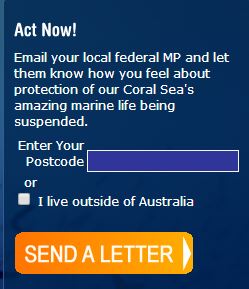What’s in a word? In the field of persuasion there are many things that continue to amaze me. For instance, the subtly of the language we use and the enormous impact it can have on the behaviour of others, is one. From Dr Cialdini’s research we know small things make a big difference and words do make a difference.
For example, if someone was wanting to cut into a line of people waiting to use a photocopier they will be much more successful if they use the word “because” during their request such as,
Excuse me, I have five pages. May I use the Xerox machine because I have to make some copies?
A beggar is more likely to increase the money given to them by adding,
of course it is up to you.
Charities are able to increase the donations given by adding
even a penny will do.
There are many examples I could continue to cite but this week I want to discuss one word that has been used incorrectly and it demonstrates a misunderstanding of the research. Recently I read an article that referenced Dr Cialdini’s work and at the outset the author referred to “likability”. Under this banner they outlined the Principle of Liking before proceeding to the other principles.
The issue for me is, “liking” and “likability” are not the same thing and in my opinion “likability” is not what Dr Cialdini had discovered or reported on. The difference while subtle is enormous.
Likability means “readily or easily liked”. It means that you are able to be liked. In my opinion this is very passive and relies on the first rule of sales “to make the customer like you” which we know is impossible – you cannot make someone like you!
The Principle of Liking creates the environment and executes the tools to show someone else that you are like them and in fact you like them.
This is an important but subtle difference. You cannot make someone like you, but you can show them that you like them.
For me:
Liking is active, whereas Likability is passive.
Liking relies on the persuader to make the first move. Likability encourages them to sit back and wait.
Liking is about drawing the similarities, shared goals, and praiseworthy activities to the surface – likability is letting someone else do it for you.
It is a subtle but important distinction in my eyes because you may be likable but this does not mean you are executing the Principle of Liking in order to build, repair or maintain relationships.
What do you think…
I welcome your comments about whether words make a difference because your comments are important and even if you are low on time, even a couple of words will do. But of course it is totally up to you!
The post Words Make a Difference in Persuasion appeared first on Social Influence Consulting Group.
 We have all received spam in our inbox. The messages are usually irrelevant most likely unsolicited, and generally for the purposes of advertising, phishing, or spreading malware. Our reaction to spam is commonly not positive. The main reason is because spam commands our attention with no return on the investment. The message demands we do something, generally a preventative act to ensure we don’t get bothered again, i.e. we need move the message to the junk folder, flag it as spam or delete it. This all takes time and it detracts from our day not adds value to it.
We have all received spam in our inbox. The messages are usually irrelevant most likely unsolicited, and generally for the purposes of advertising, phishing, or spreading malware. Our reaction to spam is commonly not positive. The main reason is because spam commands our attention with no return on the investment. The message demands we do something, generally a preventative act to ensure we don’t get bothered again, i.e. we need move the message to the junk folder, flag it as spam or delete it. This all takes time and it detracts from our day not adds value to it.